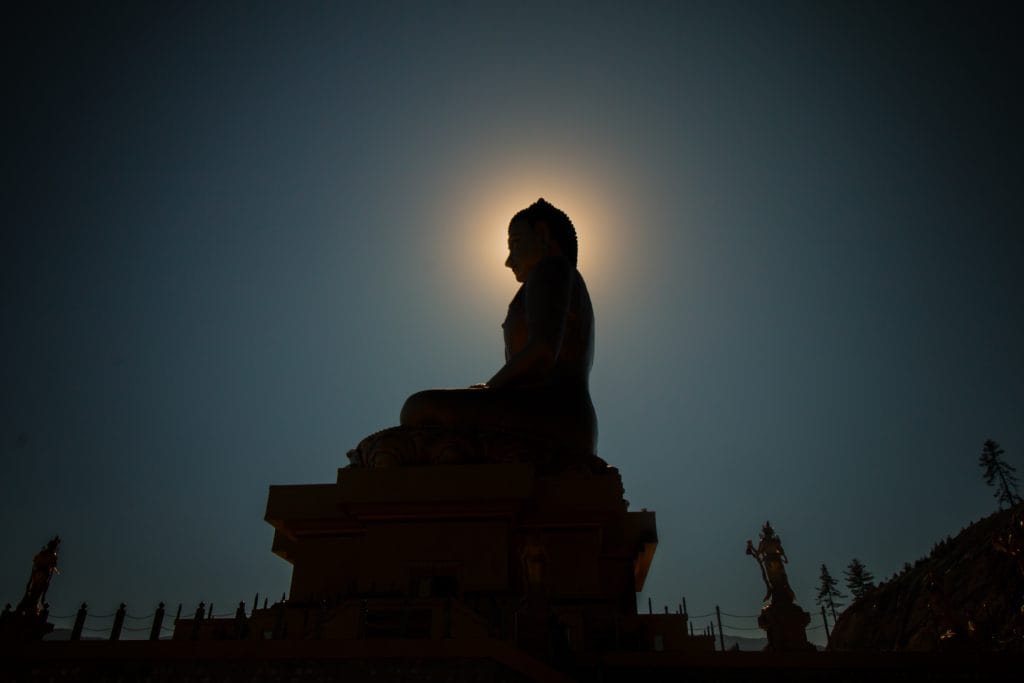Have you been following the Guardian series “Is Buddhism a religion?” by philosophy professor Michael McGhee? It’s unusual to see such a high-minded discussion in a daily periodical. The weekly column has just been finished, and each one has generated hundreds of passionate comments. Let’s catch you up, and you can join the conversation if you wish.

Photo by RKTKN
From Part 1— “Is Buddhism a religion?”:
“But it is one thing to seek to liberate Buddhist practice from unsustainable or unbelievable worldviews and another to reduce it to a mere technique, even one that is therapeutic. The usual culprit is the calming technique that makes it easier to carry out the bombing run or makes one a more sharply predatory capitalist.”
From Part 2— “Buddhism as a respite from the anxieties of orthodoxy”:
“What was refreshing about Buddhist practice for a recovering ex-Catholic was its comparative freedom from ‘belief anxiety’, a profound institutional tension about orthodoxy that produced the damaging mindset that was also the means by which the official church secured its centralising, patriarchal power.”
From Part 3— “Humanism needs spirituality”:
“A concern for the inner life – we might call it spirituality – is merely narcissistic, however, unless it is essentially forensic and exploratory, a searching out and overcoming of the forces that betray us into exploitation and violence, and the discovery and sustaining of a perspective that transcends and recoils from those forces.”
Part 4— “The Buddhist pursuit of self-knowledge”:
“When I was moving towards Buddhism, what acted on my imagination was the image of the Buddha, the representation of a human being whose demeanour reflected composure and self-knowledge. It seemed to be the projection of a human possibility, perhaps illusory, but it threw into relief our ordinary human disarray, particularly at first my own.”
Part 5— “What the luminous mind of the Buddha shows us“:
“But what is actually revealed when the mind shines brightly and the obscuring clouds have disappeared? What constitutes the wisdom of someone who is thoroughly awake?”
